
What exactly is a “cult author”? Not someone who writes about cults, certainly, but rather a writer who had (either during his lifetime or posthumously) gathered a cult following – squadrons of rabid fans re-reading his or her books over and over and quoting them to anyone who’s willing to listen.
It’s tricky to define exactly what makes a cult book, but chances are you’ll know when you read one. It’s often something obscure, because our society is obsessed with the strange and quirky. A cult author often comes at ya from the fringes of society, they write about the subcultures, about the downtrodden, about the underground. They represent that world you’d kinda like to inhabit, but are often too scared to do so. And often enough, they become the fascination of a lifetime.
In this new @adsactly series, we’ll be taking a look at several “cult authors” who mesmerize audiences well after their deaths.
And I’ve been putting off writing this (potentially final) installment in our series, mainly because of the huge impact his writing has had on my life, but I do think we need to have one part (or maybe ten) dedicated to the literary colossus that was Sir Terry Pratchett.
See, it’s kinda hard to describe Terry or his work, since he was in a league of his own, he’s so different to anything you’ve ever read before that you don’t know what to say about him. To say he wrote fantasy would be, I believe, an understatement, but for lack of a better word, let’s go with that. For now.
He was born on the 28th of April 1948 – he would’ve been 71 now, but let’s not dwell on that. This is about Sir Terry’s life, not him untimely demise. He was a prolific writer, even as a child, and had his first story published at the incredible age of thirteen, in the school magazine. Initially titled ‘Business Rivals’, it was a story about a man who comes home one day to discover the Devil sitting there, in a cloud of smoke. It was later published professionally, when Pratchett was fifteen, under the name ‘The Hades Business.’ And he used the money he got from the publication to buy his first typewriter.
In his own words, the most important part of writing was reading. Reading everything, and he made sure he did that – from Arthur Conan Doyle to Arthur C. Clarke, Terry read everything he could get his hands on and it shows, in his novels. He was remarkable in his knowledge.
In 1965, he left school without completing his A-levels to work at local newspaper The Bucks Free Press, where he wrote weekly stories for children. Three years later, Pratchett interviewed publisher Peter Bander van Duren and happened to mention he was working on his first novel (what would eventually become The Carpet People). The book was published two years later, in 1971, marking Terry Pratchett’s breakthrough as an author.
And even though Terry wrote extensively (from children’s books to sci-fi space novels), he is most well known for his monumental Discworld series, which spans over 40 novels and was written over 32 years. Which makes his output more than a novel a year, isn’t that remarkable?

Pratchett Mural src
The first Discworld book, The Colour of Magic, was published in 1983. It takes place in the fictional city of Ankh-Morpork (an obvious parallel of London, but so much more than just that) and follows the adventures of the comically incompetent wizard Rincewind, who is hired as a guide to a wealthy but naive tourist by the name of Twoflower. The two of them get in all sorts of trouble and encounter various fascinating characters. The book’s ending morphs into the beginning of the second Discworld novel, The Light Fantastic, causing many to see them as two parts of the same book.
Despite this, Discworld is not your ordinary book series. Although all the novels take place in the same universe and feature recurring characters, most of them can work as standalone novels. There is no one main character to the series, but several. There are the wizard novels that include Rincewind and focus on the Unseen University, the wizard school in Ankh Morpork and the wizards’ misadventures. There are the witch novels, the Death novels (arguably the most well-loved character of the series) and the City Watch novels, as well as many others. They have various subjects and plots, but I think the best way to sum up the Discworld series is that it’s a parallel to our own world. It’s often very funny, but also a razor-sharp commentary on society.
I could tell you how amazing Small Gods is or The Hogfather or his popular collaboration with Neil Gaiman, Good Omens, which isn’t really a Discworld book, but it’s one of the coolest novels ever written. They’re making a series of it, so I’d hurry if I were you, in reading it. I’d read all of them if I were you, because no article, no matter how loving or appreciating can really do justice to Sir Terry’s writing. So, if you’ve never read him, do yourself a favor. Start with The Colour of Magic. Or don’t. You can start anywhere, if you so wish, which only makes the series more awesome.
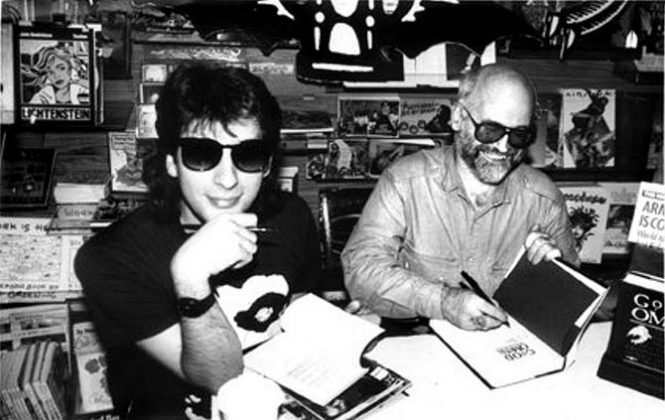
Neil Gaiman and Terry Pratchett at a book signing in 1991 src
Honestly, I think Terry Pratchett was the most remarkably intelligent human being I’ve ever come across.
Which only makes his death more troubling. In a heartbreaking statement in 2007, he announced he’d been diagnosed with early on-set Alzheimer’s disease. Truly devastating news for a man with such an incredible mind. Still, he assured fans he still had time for "at least a few more books yet" and he did. He penned some of his greatest books (such as Unseen Academicals, Raising Steam and Snuff) while suffering from that horrible disease. In his last years, he dictated books to his assistant, Rob Wilkins. It was Rob who broke the news of Sir Terry’s death, on the 12th of March 2015, with the words:

The small caps is in reference to how Death speaks in the Discworld novels.
Legacy
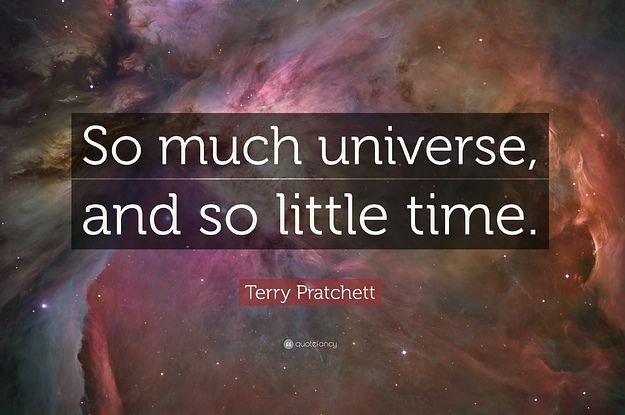
As if I even knew where to begin with this… Honestly, I have trouble imagining anyone who wasn’t in some way inspired by Sir Terry. Even though I know such people exist out there, I just really don’t want to meet them.
In the literary department, one author who springs to mind is Neil Gaiman, who was undoubtedly influenced by Terry Pratchett. The two were close friends (and as I said, collaborated on Good Omens). Neil Gaiman gave an incredibly moving speech at Sir Terry’s memorial.
Terry Pratchett is not one to go gentle into any night, good or otherwise.
But Sir Terry’s influence in endless, both on writers, as well as other artists, and on humanity in general. You can see that in the dedication of fans all over the world, who remember the author each year with the message ‘GNU Sir Terry Pratchett’, a reference to his novel Going Postal, which means this message should be carried down the postal lines in a loop, so that the name is still spoken and the person is not forgotten.
Oh, and he had an asteroid named after him. How cool is that?
Authored by @honeydue
References: Guardian 1 Guardian 2 Wikipedia TerryPratchettBooks
Click on the coin to join our Discord Chat

Witness proposal is here:
Go To Steem Witness Page
In the bottom of the page type: adsactly-witness and press vote.

Use small letters and no "@" sign. Or, click here to vote directly!
Thank you!

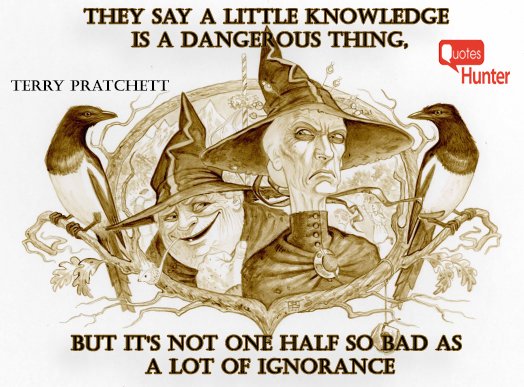
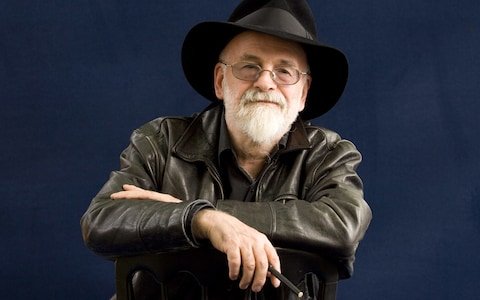
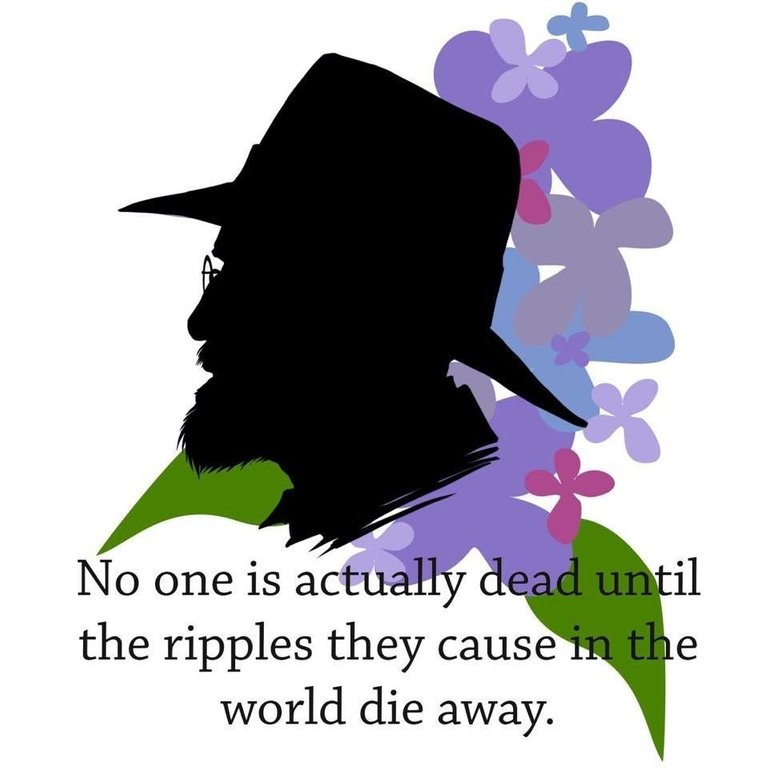
Unfortunately, I am among those people who love literature who have not read Terry Pratchett's work (informative references only). For these lands where I live (Venezuela) his books (some of which I suppose have been translated into Spanish) have not been disseminated (or have remained in bookstores in the capital of the country). Perhaps there is something that can be downloaded from the internet. For that reason, I thank you enormously for your post, as always, well informed and presented, @honeydue, which allows us to get closer to this writer of unquestionable impact in the world of youthful and media readers. Greetings.
I must admit with great sorrow that I am among those people who like literature but have not read Terry Pratchett. By your post, I can know not only the literary value of their works, but the influence they can have among other authors who have followed with fantasy literature. On the subject of Alzheimer's, these days I was reviewing the number of artists who have suffered from the disease of forgetfulness. Although there are several actors, politicians and figures linked to the world of culture who suffer or have suffered from this disease, silence, in most cases, is the norm. It is good to end the stigma of this terrible illness and good that famous people, such as Pratchett, who suffer from this disease, confess their illness and still continue working. Surely an example is set for everyone! Thanks for your excellent post, @honeydue
I love Terry, I started reading his novel on high school, now I read his short stories to my kid. And I'm pretty sure that I still have a few books to read because for me it will be hard to say Goodbye to this author.
Posted using Partiko iOS
I know what you mean ;) He was truly one of a kind.
Already in love with this series, great idea and fantastic post!
Posted using Partiko Android
Thank you :) I'm really happy you enjoyed it! :D